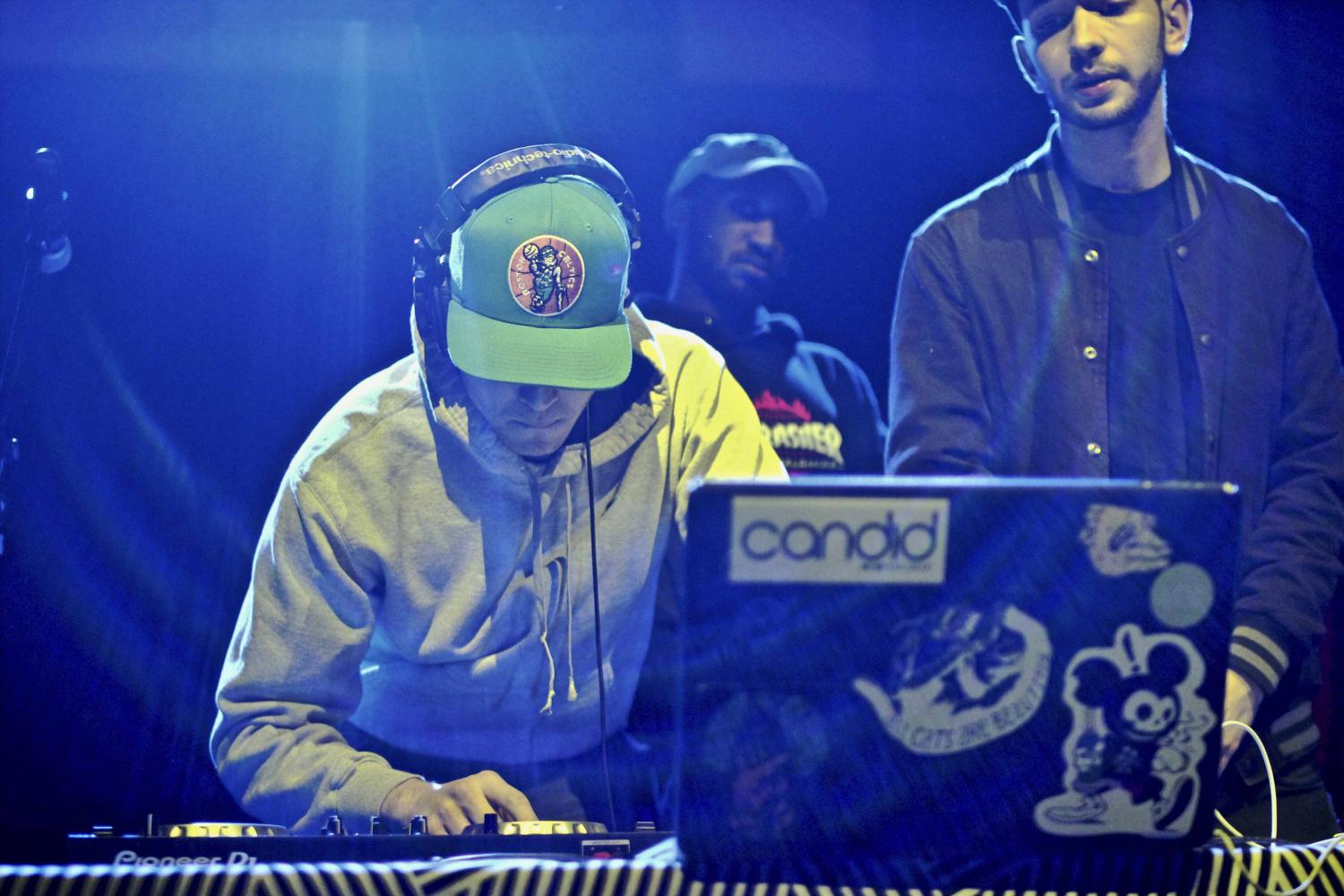Solarity’s “Atlantis” Returns to All-Student Roots
College seniors (left to right) Abe Post-Hyatt, Kyle Tribble and Gabe Simon perform at Illusion, Solarity’s fall event that took place in Hales Gymnasium. The organization’s spring event, Atlantis, will be held tonight in the Heisman Club Field House.
May 5, 2017
Solarity has thrown the largest student-run event on campus every semester and will be back tonight in the Heisman Club Field House. This semester’s Atlantis theme will offer a ship-furnished, aquatic feel, and organizers have brought the event back to its student-centered roots with an impressive string of student DJs as well as student music, dance and aerial performances.
This semester’s event follows the decision to bring in big-name DJ and musician Metro Boomin for fall’s event, Illusion. Organizers hoped to bolster attendance after an entire year without a Solarity showcase.
“Metro was an extenuating circumstance, due to some finance factors and timing issues that made it advantageous,” said College senior Dan Lev, who was formerly in charge of staging and sound for the event and has made time to help with organization this semester despite his busy schedule. “Because Solarity hadn’t had an event the previous year, we thought it would be prudent to make a big splash with a big name, but that was one of the only times that an outside act like that has been brought in. It’s usually exclusively student artists.”
“We think that excitement [from Metro] is still carrying over, but Solarity is still about showcasing students,” said College junior and Promotion Director Daniel Shvarts. “We really want to go back to that. … I think some of the student acts were way better than the big act, even though many people just came for that.”
Solarity had been a longstanding feature of campus culture before its year-long hiatus. The event was canceled in fall 2015 due to organization complications, and again the following spring when a large contingent of the organizing body went abroad.
“When I was an underclassman, Solarity was one of the biggest nights, if not the biggest night of the semester,” Lev said. “To now have first- and second-years not know what it is kind of hurts, as a four-year member of the club. It’s also worrying for the continuation of the enterprise.”
Due to predictions of a wet, miserable, 45-degree-Fahrenheit weekend, the event has been moved from the Facilities Lot to the Heisman Club Field House, in part to preserve the sound and lights equipment. The wireless headphones, which would have allowed the revelry to continue well past midnight without causing a noise disturbance, will no longer be necessary. Organizers hope the change will also curb any dip in attendance that such inclement weather might cause.
“It takes a lot [to throw an event of this scale], and usually [there’s] a lot of last-minute, ‘Oh, we don’t have this thing, we’ve got to figure it out,’” Shvarts said. “In the past few weeks [Production Director and double-degree junior Daniel Markus] had to find a tent, talk to different lights people, … [talk] to the headphone group [and cancel] the headphone group because we had weather problems.”
The impressive turnout that Solarity generates, as well as the utter lack of other similarly massive student events on campus, make the hard work worthwhile.
“We aim for a crowd, this semester, of around a thousand,” Lev said. “That’s about a third of the student body. … We hope that Solarity serves as a kind of unifier to really showcase the best of what we have here. … There [were] tons of musicians and tons of artists and tons of talent that you could go see [in] a recital or you should go see a show, but there was not one aggregated platform where you could go see as many people as possible at one big venue. Solarity was born out of the idea that we should throw a huge party that as many people as possible can go to with as many student artists as possible.”
Solarity’s sheer scale may not exactly conform to Oberlin’s depiction as a small campus with dozens of small venues constantly in use by student performers, but its traditional all-student roster gives it a distinctly Oberlin feel.
“It’s definitely not what people think of [when they think about Oberlin], but I think it’s a nice thing that definitely people really want,” Shvartz said. “We usually sell out every single year. I think it fits in the culture. Oberlin is known for [being] ‘small,’ and we have these small events and the students go and it’s great, but I think we really also have this desire for something big — I think most of the student body has that. I think we have an incredibly diverse set of artists playing and people attending who can really show that most of the school does want something like this.”
















